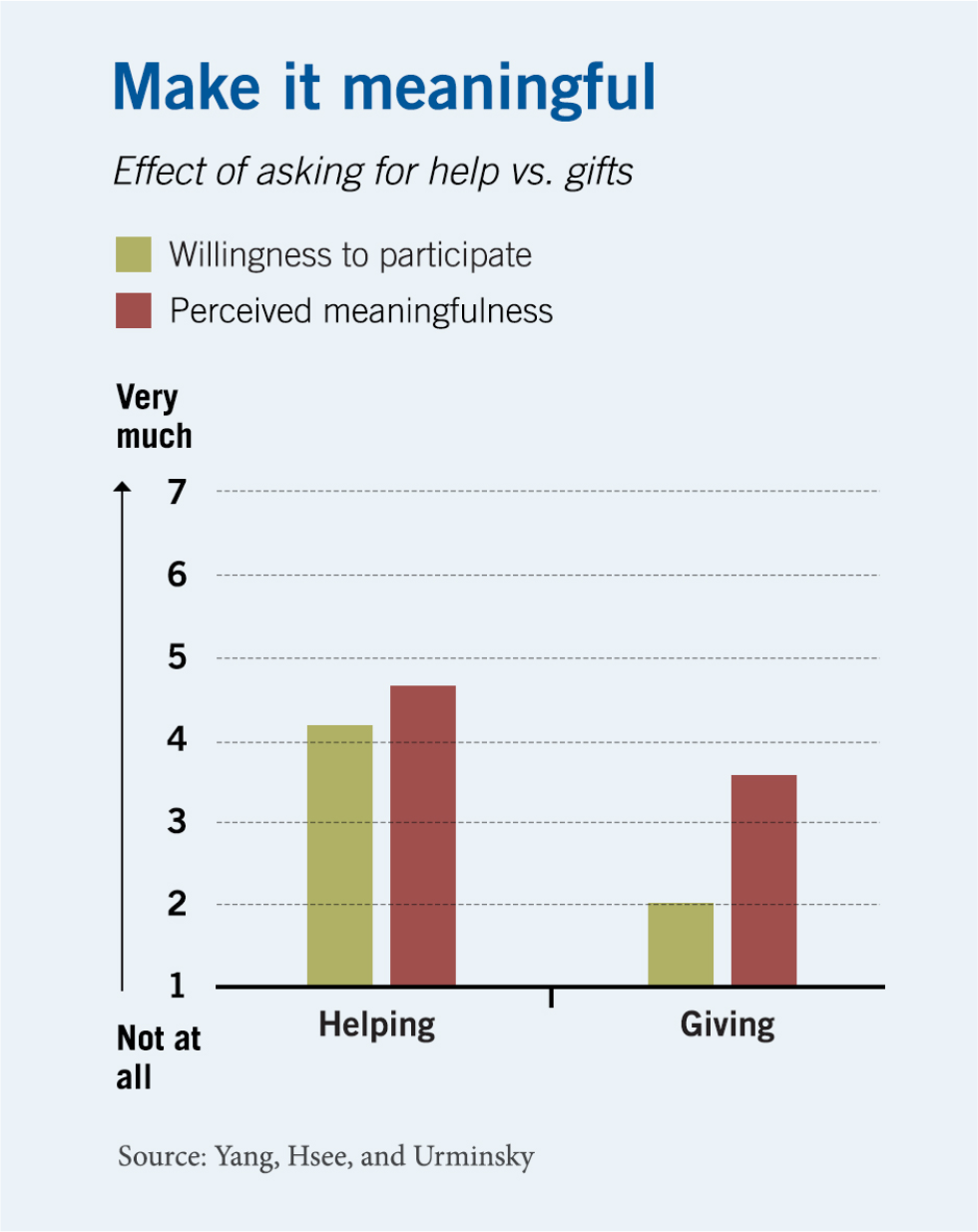
How Much Should Facebook Pay You for Your Data?
Framing changes how different people answer the question.
How Much Should Facebook Pay You for Your Data?Why people prefer to give their time rather than money
Asking for help, rather than donations, can increase charitable giving.

A helping opportunity is associated with a sense of meaningfulness, which could encourage people to do more for charity.
Adelle X. Yang, Christopher K. Hsee, and Oleg Urminsky, “Eager to Help Yet Reluctant to Give: How Pro-social Effort and Pro-social Choices Diverge,” Working paper, July 2014.

Framing changes how different people answer the question.
How Much Should Facebook Pay You for Your Data?
Ideas abound for a simpler, more effective tax regime.
Is the Tax Code beyond Fixing?
A summer camp offers lessons on how to form close relationships with members of other groups.
How to Forge Relationships with the ‘Enemy’Your Privacy
We want to demonstrate our commitment to your privacy. Please review Chicago Booth's privacy notice, which provides information explaining how and why we collect particular information when you visit our website.